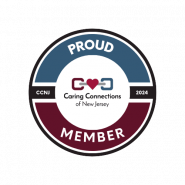A free, brief form of memory screening is being offered to older adults in New Jersey to promote healthy brain aging and reduce the risk of dementia.
By Tony Dearing | NJ Advance Media for NJ.com
Published Oct. 18, 2021
If you’re worried about the threat of dementia, there’s something you can do right now to reduce your risk.
Get your memory screened.
That simple act of preventative care offers one of the best ways for older adults to protect themselves against the ever-growing threat of Alzheimer’s disease.
If they could just be persuaded to do it regularly.
Surveys show nearly all primary care doctors and 82% of their older patients agree that an annual cognitive assessment would be beneficial. Yet only 16% of adults 65 or older say they regularly get their memory evaluated.
To help older adults take charge of their brain health, leading New Jersey memory specialists and the Global Alzheimer’s Platform Foundation are launching a statewide memory screening initiative in November, offering a free, brief form of memory testing for older adults at three of the state’s leading Alzheimer’s research centers.
“We’re inviting all people over age 50 to come to the screening event, whether you have concerns about your memory or not,” says John Dwyer, president of the GAP Foundation. “If you’re concerned about your memory, getting an evaluation is a quick, no-cost way to determine if you’re having issues beyond what can be expected with normal aging. If your memory is in the normal range, the results of that screening give you a baseline for comparison if you experience cognitive changes as you age.”
The free, confidential memory screening will be offered on Nov. 3 and Nov. 17 at three Alzheimer’s research centers. All are members of the Global Alzheimer’s Platform Foundation network, which focuses on dementia prevention and advancing clinical research. Those sites are:
- The Cognitive and Research Center of New Jersey, 195 Mountain Ave., Springfield
- Princeton Medical Institute, 256 Bunn Drive, Suite 6, Princeton
- Advanced Memory Research Institute of New Jersey, 9 Mule Road, Suite E9, Toms River
The 30-minute memory testing for adults ages 50 and older will be conducted in a private setting. After you complete the assessment, you’ll meet one-on-one with a memory specialist who can discuss the results with you, and address any questions or concerns you have about your memory. You’ll also receive information about brain health, dementia prevention and local resources you can take advantage of.
To learn more or to schedule your appointment for memory screening, you can go to the NJ Memory Screening Initiative page here or call toll-free at (888) 533-1131.
Health experts say regular cognitive testing is a good idea for all older adults, and especially if Alzheimer’s runs in your family or if you’re experiencing memory problems that you find worrisome.
In an aging America, those worries need to be taken seriously and addressed proactively. More than 6 million Americans are living with Alzheimer’s, and unless we find more effective ways to treat it or prevent it, that number is expected to more than double to 13 million by 2050.
Fortunately, recent years have brought unheralded breakthroughs on the prevention side. The Lancet Commission and other groups now estimate that anywhere from 40% to 60% of all dementia cases could be prevented by putting more emphasis on lifestyle changes, along with brain-health education, annual memory screening and early detection.
That’s why the organization Us Against Alzheimer’s is now pushing for the United States to set a National Alzheimer’s Prevention Goal and enact policies to achieve that, including broad-based memory screening efforts.
Kelly O’Brien, executive director of the Us Against Alzheimer’s Brain Health Partnership, says while drug development continues, more attention needs to be paid to keeping our brain healthy and reducing the risk. She says emerging data tells us dementia is preventable, and older adults who adopt healthy habits and get their memory checked regularly can reduce their risk of Alzheimer’s.
“There’s still a misperception that cognitive decline is inevitable, and that’s just not true,” O’Brien says. “People can do something about it. I find it shocking that despite how exciting this news is, it’s not well-known. People need to think about brain health much earlier.”
Part of being proactive about brain health is getting your memory screened once a year, just like you’d get an eye exam, a mammogram or go to the doctor for a blood test to see about your cholesterol level.
The fear and stigma associated with Alzheimer’s may keep some people from taking a cognitive test, but O’Brien says we as a society need to stop seeing it that way. Memory screening is just good, basic preventative health, she says.
“When I get my blood pressure checked, I don’t feel like the doctor is accusing me of heart disease,” she says. “It’s like anything else — we just want to catch it early. I’d like to see us get to a place where we’re doing memory screening regularly so we can see any changes over time.”
Here are four reasons why older adults should consider annual memory screening of the type that is being offered in New Jersey.
- It may show that despite your worries, your memory is just fine.
Many people who get a memory test end up among what experts call the “worried well.” They feel their mind might be slipping, but the results show their memory remains within a normal range for someone their age. What a huge relief that can be. But it’s also an opportunity to learn more about brain health and preventing dementia, so you can take steps to keep your mind sharp.
- It creates a baseline score, which you and your doctor can track over time as an early warning system.
Once you know what’s normal for you, as you continue to get tested annually, it becomes easier to detect and address any subtle decline in the future. Too often, people ignore memory problems for years, until the signs of it become glaring. By then, too much damage has been done to the brain, and treatment options become limited. When that decline is caught at the very earliest stage, the opportunity to prevent or delay further decline is much greater.
- If there is a memory issue, it may be caused by a treatable medical condition.
Sometimes, a person may avoid getting their memory tested because they’re afraid the underlying cause is Alzheimer’s. But there are many other possible causes of memory loss. “Not every issue with your cognition is dementia,” O’Brien says. “Sometimes, it might be a drug interaction or you’re not getting the right nutrition. A lot of things that cause cognitive impairment can be treated and fixed.”
- If the screening suggests a problem, you can be referred to specialists for further evaluation, an accurate diagnosis and a treatment plan tailored to address your condition.
When you get your memory screened through this new statewide program, the score may show you’re cognitively normal for your age or it may suggest possible or probable cognitive impairment.
If the latter is the case, that is not a diagnosis of dementia. It’s an indication there’s a memory issue that needs to be followed up on. You can be referred to cognitive specialists — such as a neurologist, neuropsychologist or geriatric psychiatrist — to be properly evaluated and diagnosed. When that diagnosis is made early enough, a combination of lifestyle changes and medical treatment can potentially delay the progression. It’s also an opportunity to be considered for participation in a clinical trial.
“If a screening indicates cognitive decline, that information allows you to do some planning for care and treatment,” Dwyer says. “Many people choose to volunteer for clinical research. That gives them access to brain health experts and potentially to investigational medications — and it makes them part of the team searching for cures.”
O’Brien adds that “it’s never too early and it’s never too late” to adopt lifestyle changes that can protect cognition. “There is some evidence they may delay onset and reduce the risk,” she says.
Brain friendly habits include getting regular exercise, eating healthy foods, managing stress, staying socially active, keeping your mind challenged and receiving an annual brain-health checkup that includes cognitive testing.
O’Brien says these healthy habits don’t guarantee prevention of dementia, but they can help keep your mind sharp and give you a better chance of fending off Alzheimer’s. She likens them to the choice you make to buckle up when you get behind the wheel of a car.
“We tell people to wear a seatbelt, and that doesn’t mean you won’t get in an accident, but it really does reduce your risk,” she says. “There’s no downside to these risk-reducing behaviors. There are no negative side effects. It may seem harder than taking a pill, but the payoff is so much greater. These are things that only will help you live a high-quality, healthier life.”
All three sites offering the free memory screening — The Cognitive and Research Center of New Jersey in Springfield, the Princeton Medical Institute in Princeton, and the Advanced Memory Research Institute of New Jersey in Toms River — will have COVID-19 safety protocols in place, as they have throughout the pandemic.
Appointments are required for the screening. You can choose the site most convenient for you and then schedule your appointment online by going to the NJ Memory Screening Initiative page at https://globalalzplatform.org/njmemoryscreen/ or by calling toll-free at (888) 533-1131.



